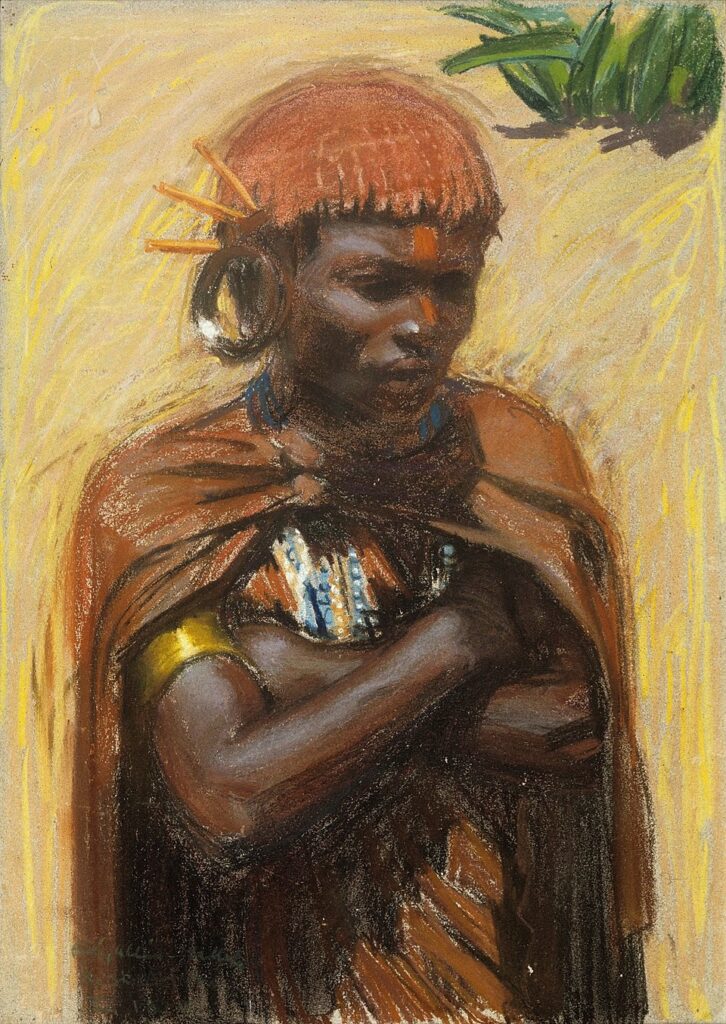Afro-centrism has long dreamt of Africa as one united polity run under a central authority. Pan-Africanism too has long advocated such an arrangement – despite the conditions past, present and likely future seeming to say otherwise.
The notion of a United States of Africa is most likely derived from the example of the United States of America. The US is colossus that since the end of World War II has dominated the world politically, economically, militarily and socially. Africans therefore seem to think that if we simply cobbled up all the existing African states into one polity that would – in a magic Midas touch – instantly transform Africa into what America is.
Africa’s identity
Part of the problem is that many Africans – especially black Africans – have a distorted view of African history. That’s why you come across claims that Jesus was black and that the ancient Egyptians who built the pyramids were black. Then there are the Rastafarians with their Twelve Tribes ideas who are so drunk on Israel that they consider the word ‘Zion’ to be sacred rather than associated with oppression – as it is.
Moreover, Africa’s nation states did not emerge naturally. Their borders were drawn by the colonizers to facilitate mineral extraction and plantation agriculture. In short, Africa is a continent with a traumatic colonial legacy which surfaces on even the most elementary enquiry. We are also a continent with many identity questions still unanswered.
Divisions within African countries
Consider these examples. In Kenya the Luo seem to be locked out of power courtesy of a Kikuyu-Kalenjin hegemony. In my own country Uganda, the Baganda – after whom the country gets its name – believe they should be an independent or autonomous polity. And the situation is made more difficult by the smaller communities combining together to thwart the interests of the Baganda who are the majority.
In South Africa the majority are the Zulu who have never been comfortable with the status quo. This meant that Mandela and his colleagues had to walk the tight rope when bringing down apartheid. In West Africa the north-south divide reflecting religious differences is something you just can’t push under the carpet. Closer to my home, the Tutsi and Hutu in Rwanda are yet to come up with a Lebanese-like solution. To sum up, we can’t head for utopia without first resolving the problems that are staring us in the face.
Practical problems
Let us imagine an Africa following the European Union model in which countries have voluntarily ceded some of their powers to a central African authority. An Africa with a common currency, a common passport, a uniform tax regime, and an African parliament making laws binding on all African countries. Folks, this is why the word ‘delusion’ appears in the English dictionary.
I come from a country where it has often been suspected that bank notes printed by the official printers of legal tender have not come under the jurisdiction of the Central Bank. Can we really imagine any African president foregoing such a privilege? And who would print the ‘Africana’? (I have at least given our dream currency a name). Wouldn’t it be a shame if such a currency were to be printed off the continent? Ngugi Wa Thiong’o breathed his last in the country that is the very capital of neo-colonialism – despite his efforts to decolonize the African mind.
What about a common Passport and open borders? Tanzania just recently deported some activists from Kenya and Uganda. If we can’t even stomach dissent from our neighbours, how could we bear headaches arriving from all across Africa, our borders being open?
Regional groupings
Let’s look at regional groupings. Suppose the East African community sought a political merger. Would Kenyans or Tanzanians really allow Yoweri Kaguta Museveni to become the political head of East Africa? Would Ugandans allow Paul Kagame to lead the bloc? Let’s think of a compromise candidate. Would South Sudanese President Salva Kiir come in handy? The bloc can’t even solve the quarrel between the Democratic Republic of Congo and Rwanda, and yet we are suggesting an even bigger basket with even more quarrels. That just means a bigger powder keg and more powerful explosions.
So, what about West Africa? Mali, Burkina Faso and Niger have become a bloc of countries led by leaders of military coups. What do we do about them? The last time I heard, Nigeria – the muscle man of ECOWAS – chickened out.
Lastly, there is the division between North Africa and sub-Saharan Africa. You can see solidarity expressed in terms of which country people want to see winning the tournament. Morocco even tried to join Europe.
If you don’t want heartaches, just enjoy the African spectacle as it is. Don’t bank on utopia.
By Lukyamuzi Joseph
The Writer is a Ugandan Journalist


